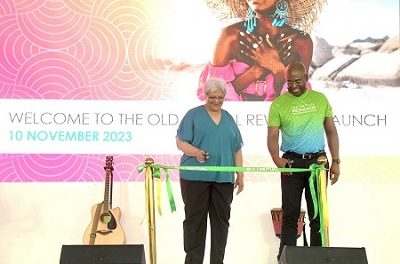
The Ministry of Health and Social Services will not release the names of companies contracted to supply critical medical items yet they failed to deliver on time or to deliver at all.
In the recent years Namibia has been grappling with a situation of the unavailability of certain critical medicines at state hospitals. At one stage the ministry of health had even run out of health passports.
Many people have come to believe that the shortage of tablets and other medical items at public hospitals is a result of either government being broke or inefficiency of the ministry.
But at the end of last year the health ministry’s executive director Mr Ben Nangombe revealed to one national newspaper that the delays in the delivery of medical supplies was the reason government hospitals and health centres across the country have been experiencing shortages of medicines and medical equipment.
Close to 20 local companies were contracted to supply urgently needed medical items but they failed to deliver at the time they had promised to deliver. The health ministry’s top official said that the delays ranged from two months to ten months.
This situation had caused great inconvenience, and possible death, to thousands of poor Namibians who depend entirely on the health services provided by the ministry of health.
In a 25-minute telephonic conversation with Omutumwa on 29 January 2020 Mr Nangombe refused to reveal the names of the contracted companies whose delay in delivering critical medical items had so much inconvenienced the public.
Nangombe was adamant that revealing the names of the companies may open a can of worms for him.
“I am constrained to release the names. I may get sued. If I divulge information about the operations of such companies it may have a negative impact on their future prospects,” he said. “And they might not like it.”
For Nangombe it would be better to protect the privacy of these companies rather than engage in a process of transparency for the benefit of the public.
“I know why those companies failed to deliver on time. There are multitudes of reasons. Some failed because the product was no longer available in stock at the manufacturer, or when the company went to the bank for funds it took too long to process the funds; or it might have been delays caused by transportation such as bad weather since these items are manufactured abroad,” he explained.
Nangombe insisted that the companies did not receive special treatment nor be treated with kid gloves while they failed to deliver and were guilty of putting the health of people at risk. “What we did was to cancel the contracts with those who failed to deliver. Some had tendered for as much as 300 items, and they failed only to deliver on eight or ten items.”
The ministry of health and social services’ vision is to ‘be the leading institution of quality health-care and social services according to internationally-set standards’ while its mission is to ‘provide integrated, affordable, accessible, equitable, quality health and social welfare services that are responsive to the needs of the population of Namibia.’
CAPTION: Happy mother and happy nurses at Opuwo District Hospital. When medicines are always available it makes both the patients and health workers happy.






